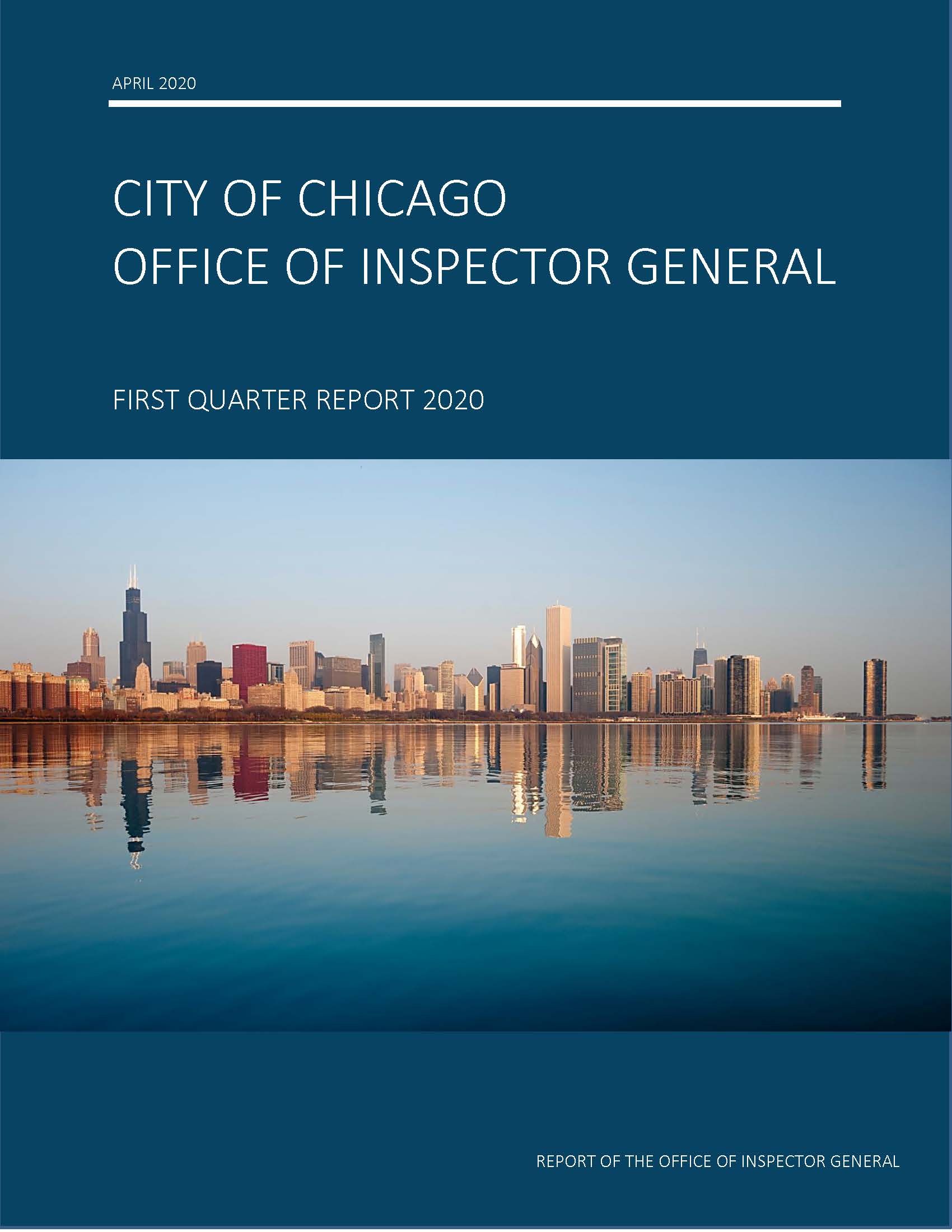OIG First Quarter Report 2020
Summary
This quarterly report provides an overview of the operations of the Office of Inspector General during the period from January 1, 2020 through March 31, 2020. The report includes statistics and narrative descriptions of OIG’s activity as required by the Municipal Code of Chicago.
Executive Summary
The mission of OIG is to promote economy, effectiveness, efficiency, and integrity in the administration of programs and operation of City government. OIG accomplishes its mission through investigations, audits, and other reviews. OIG issues summary reports of investigations to the appropriate authority, management officials, and/or the Mayor, with investigative findings and recommendations for corrective action and discipline. Summaries of sustained investigations and the resulting department or agency actions are released in quarterly reports. OIG’s audit reports and advisories are directed to the appropriate agency authority or management officials for comment and then are released to the public on the OIG website. OIG’s department notifications are sent to the appropriate agency authority or management officials for attention and comment, and are summarized, along with any management response, in the ensuing quarterly report. Finally, OIG issues reports as required by the Hiring Plan and as otherwise necessary to carry out its hiring oversight functions.
Subscribe to the OIG Bulletin to get notified about future publications.

